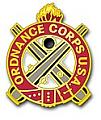Soldiers deploying and returning from deployment’s are run the gambit of “helpful” briefings and screenings by the DOD and VA. Unit FSGs and the community service agencies of each branch have greatly increased the benefits and support available to both soldiers and their spouses. While these programs all seem positive in and of themselves, (Battlemind, Yellow Ribbon, PDHRA, Strong Bonds, WTU’s, etc etc.) they have all been created ad-hoc, and some have limited public awareness, such as the strong bonds program. My focus is social service needs and mental health, though medical treatment falls into this. My question is, if you were to create a comprehensive program for the returning vets, what programs would you keep or model your plan on; what programs are redundant or of negative benefit? All feedback is beneficial
Reed













Bookmarks